I have a gut feeling that fans of indie rock are going to want to make themselves very familiar with Greg Freeman. The Vermont-based singer-songwriter's second LP, Burnover, packs a dynamic punch of guitar-driven indie rock anthems with just enough experimentation to make one question if the former is even a valid enough description.
Wrapped around the same time that Freeman was re-releasing his critically acclaimed debut I Looked Out, Burnover feels like a matured step for the twenty-seven-year-old. He has been compared in print to the likes of Jason Molina and MJ Lenderman, but this record continues to prove that Freeman is following in his own footsteps. The more stripped-back sound of Burnover allows Freeman and the band's melodic sensibilities to shine. The title track features a lovably catchy interplay between the slide guitar riff and a brief Street Legal-esque harmonica motif. On "Rome, New York,” a chorus grows to chant the infinitely repeatable line, "passing right by the broken dreams of the broken into cars." More deliberately abstract moments like the closing track "Wolf Pine" veer into an almost Neutral Milk Hotel-esque ambient, noisy crescendo. "Curtain" is such a highlight that I find myself struggling to explain why exactly.
Freeman's music has enough pizzazz to hook the listener and enough substance to reward those who enjoy dissecting lyrics. Burnover's production shifts between the sparse and the chaotic so naturally—even in moments where things feel thrown at the wall, it all feels deliberate. Beyond all of its bohemian intellect, it also features enough beer-soaked, noisy guitar riffs to satisfy the garage rocker in all of us.
I spoke with Greg Freeman about Burnover, the impacts of Burlington's music scene on his growth, and how he has developed a good relationship with touring. This conversation has been edited for clarity and length.
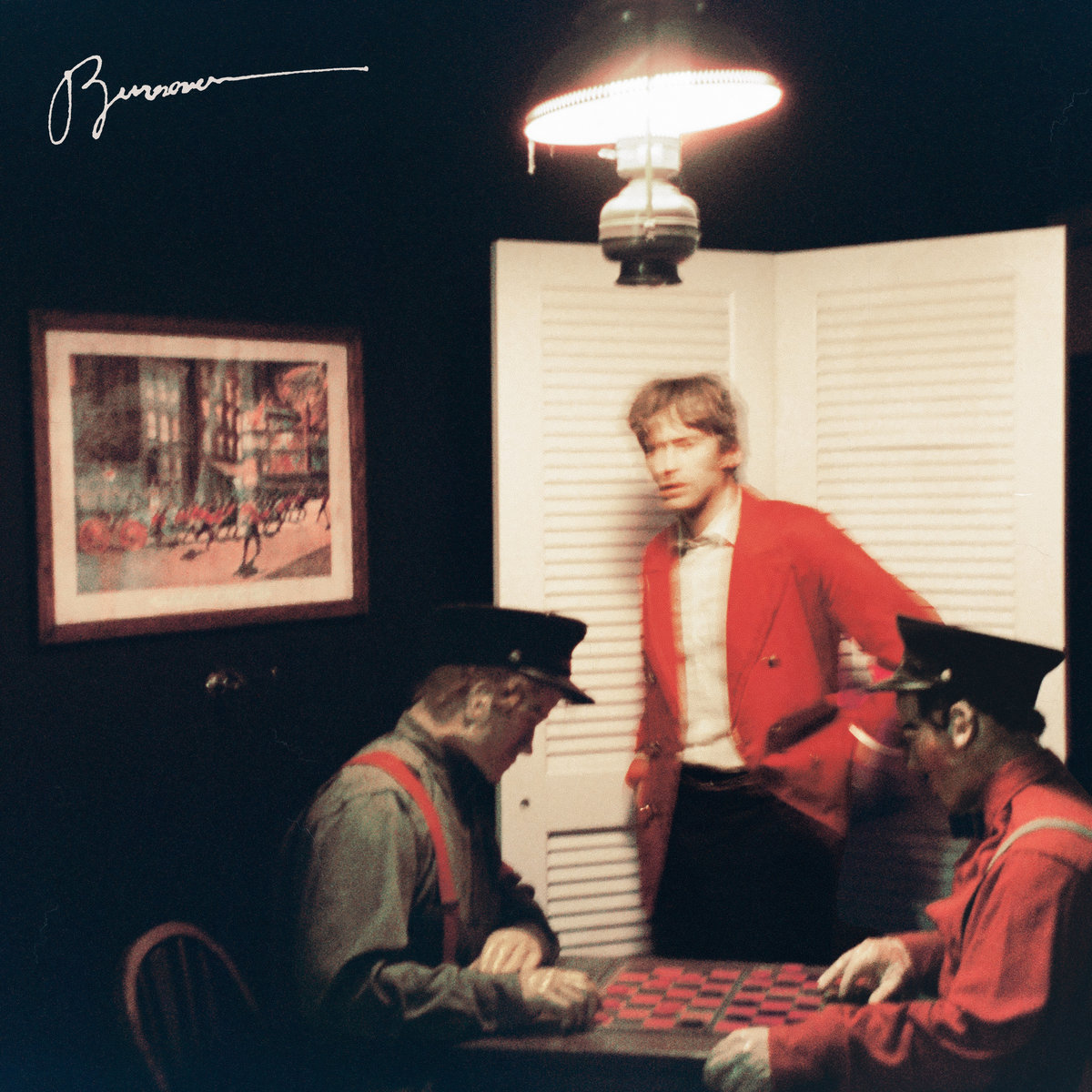
Sam Bradley: I wanted to ask about how your move to Vermont changed your trajectory.
Greg Freeman: I moved here to Burlington when I was like eighteen. Although it's the biggest city in Vermont, it's still quite a small town. It's very concentrated in the amount of art, music, and weird shit going on. There's a solid amount of people who want to play music. So, yeah, moving up here, I was amazed at all the opportunities to play live music. It's really accessible and open—there were a few venues that were good in terms of letting anyone play there.
Sam: Has there been a lot of growth in the local music scene since you moved there?
Greg: I think it ebbs and flows. I feel like when I moved here, there were more places actually to play than there are now. It kind of felt like one of the last places on the East Coast where you could live some kind of bohemian lifestyle. Rent was pretty cheap. Yeah, there are a lot of factors, I think, that caused the scene to be really good, starting when I moved.
It's still as good now, but it's like they're fighting the social dynamics of the increased cost of living and not very many job opportunities. Venues have been shutting down left and right, and downtown, there's a pretty bad drug problem.
Sam: When did you start writing songs?
Greg: It's something I've always done, ever since I could play guitar, I was writing songs. I'd be doing it no matter what, whether or not I had some sort of fan base or career or whatever. I was never good at learning other people's songs on guitar. I’ve always wanted to write my own since I was a little kid, I suppose. Getting a booking agent was definitely a big thing in terms of being able to take touring more seriously, as far as steps go.
Sam: What is your personal relationship with touring like?
Greg: I feel like it's just like any job you have—you have to develop a good relationship with it for it to be sustainable. That's something that I'm figuring out how to do. For me, it's almost like when I'm not touring that I have so many doubts that come with being an artist of any kind. You're always in your head, or you're just debating why you're doing this or dealing with some logistical shit that you don't want to do. Then, when you're playing live, it just all goes away. To me, it's like the only thing that matters.
I've never had an interest in just having only a recording project. The live shows are really important. It's also just a real privilege to be able to play, even if it's like fifty to one hundred people. Yeah, I feel really lucky I get to play decent shows.
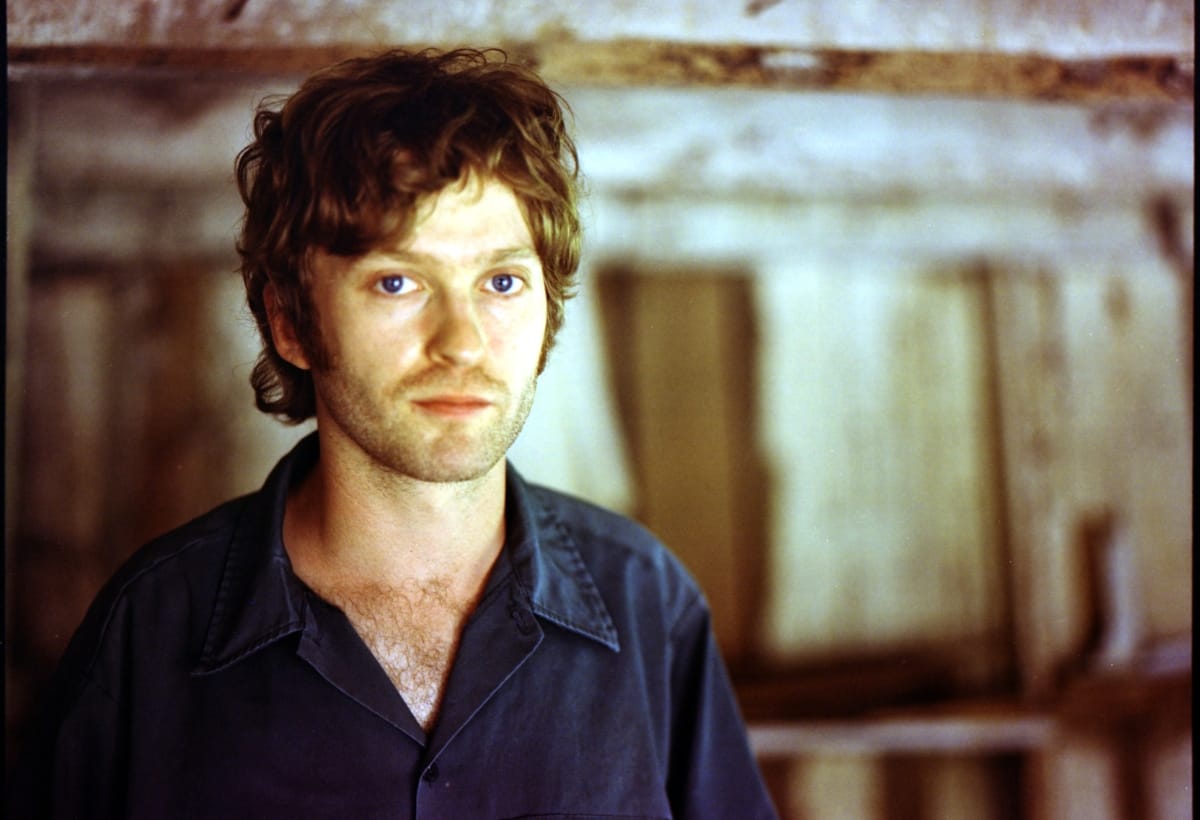
Sam: Something I have written down about the record is a somewhat nomadic, or maybe just well-traveled, quality to it. How has travel enhanced your ability to capture the things you see or the way you feel about certain things? How much of your songwriting comes from seeing different parts of the world?
Greg: I never wanted to be a songwriter who just writes about myself and my internal world. To me, if I'm singing that kind of song every night, it's just self-centered in a way. Being able to ground the music and themes in an understanding of yourself within your surroundings, as well as in stories and the material world, is way more interesting to me. And you can't really understand yourself without understanding, or at least thinking about, the place that you live and the places that you go.
I mean, I'm nomadic in a way that my parents moved to Maryland when I was a kid. I grew up in the suburbs, and then I moved to Vermont to go to school. I'm not from here, but it's my home now, so there's a sense of having no real claim to any particular place, which I feel like is maybe more of a modern experience. I think it's one that can be disorienting and probably leads to a lot of confusion about your identity.
I remember when I was a kid, I was obsessed with old blues music—even like in middle school, for some reason I was listening to 1920s blues. With any folk song from that era, geography is so important and so heavily referenced. I'm thinking about all of the Delta blues players who would talk about small towns in Mississippi or whatever. Any Robert Johnson song is just a list of places, and you know, some white guy in the Netherlands would have no idea what he's talking about, but still, it doesn't matter. It's like it grounds the music in a sense of place, and I think that's something I've learned from folk music—being grounded in your environment. Maybe I'm trying to convey something like that.
Sam: Do you think there's any alternate timeline where you stay in the Maryland area and find yourself in a similar position?
Greg: I think I had to get out because I lived in a cultural vacuum of the DC suburbs.
I played this benefit festival in DC last month called the Trans Rights Liberation WKND. There were a ton of cool local and out-of-town bands. It was the first time in a long time that I felt connected to DC as an artist. There are a lot of great bands there right now that are holding it down. I think it's really important because politics are so crazy there right now that it's like now's the time for there to be a scene there that talks about it. So, I think there is a possible reality in which I stayed and made some kind of music, but I also think I was too young to be able to fully find myself while living there.
Sam: When I was reading the song titles, the song "Rome, New York" stuck out to me, which I only knew because that's where they held the infamous Woodstock '99. It sort of sent me down a rabbit hole of this idea of a "nineties revival" happening in some cultural and aesthetic ways in the 2020s. How much, if any, of your time is spent thinking about those sorts of things?
Greg: I guess I see it. I feel like this is mostly a thing in music and fashion, but anything that's overly referential to another time, especially like the nineties, it's so—why not just do a new thing? It's just that every decade is now popular again in different subcultures at once.
I was hearing my friend tell me about how there are mods in Chicago now. There's a mod scene of young twentysomethings and people like driving around on Vespas and playing Rickenbackers. To me, that's hilarious—I mean, it's not good or bad, just funny.
Yeah, I think everything is once again popular at the same time because of the internet. Someone else could give a better explanation of why the nineties are particularly cool again. I feel like it has to do with marketing and branding. You go on Instagram, and there's a thing where you can chat with AI Kurt Cobain. That's just such a—I don't know, it's just horrifying really. I mean, imagine who allowed them to use his image to do that? It's insane. So yeah, it's kind of dystopian in a way, but also a natural thing where the past is cool again.
Sam: I take it you're not someone who spends a lot of time trying to pay homage to any particular era or decade?
Greg: Well, I think for my influences, I certainly don't try to hide them. I wouldn't consider myself a revivalist or anything along those lines. I feel like a lot of it has to do with aesthetics, and I just might not have as strong an aesthetic-based mind.
Sam: Can you talk a little about the title, Burnover?
Greg: I wrote it in that song "Burnover," in which it has its own connotation. But historically, there's a different association with the early 1800s in Western New York. There was this new age religious Christian movement of apocalyptic theology and weird utopian communities. I wasn't trying to get overly historical with the name or anything. I think there's an element of trying to play with this name, which has a couple of different meanings.
Sam: I'd read about you slimming down and changing the lineup of your touring band. Is that lineup the same roster of people from the record now?
Greg: The folks that play live with me now are featured on the record, but there are also other musicians that I don't play with live that are on the record. Mostly, it means that I'm the only guitar player in this lineup, which I like because, at least for this record, I felt like a lot of the songs were approached knowing that I was going to be the only guitar player. There are a lot of things built into the songs and the chord progressions that maybe you don't see on the first record. It can be easy playing with a big band because you can mess up and no one can really hear—it's kind of a wall of noise thing. You have to be more dynamic the fewer people you play with. Even five is still a lot of people compared to playing with three, which is something I'd like to do eventually. Doing a trio takes a lot of practice, and I like having the horns and pedal steel or violin, depending on the tour.
Sam: Have you found it difficult translating any of the older songs to the more slimmed-down band?
Greg: Honestly not really, as far as the I Looked Out record goes. There's not a lot of crazy guitar on it. The guitar's pretty quiet for a lot of it, but that can be even harder. I think it's easier to do loud guitars. Well, maybe not easy to pull it off in a cool way, but I think the new album is going to be a little trickier in terms of playing it live because there are slow, long songs, there are fast, short songs, and there's more of a variety of instruments going on.
Sam: Rolling Stone mentions your appreciation of Bob Dylan's Street Legal, which is a record I love and a connection I made pretty quickly with some of the instrumentation. What about that record speaks to you, and how did its qualities influence Burnover?
Greg: To me, that record is so story-driven, and the lyrics are so distinct and powerful, even though some of those songs are really long. I feel like when I hear it, I hear the arrangements kind of built around those stories. It can kind of meander a lot of the time, but in a way that suits the song. There is a surprisingly large amount of instruments on that record that you don't notice the first time around. So yeah, I don't know if I was thinking about that as much when I was recording this record, but I think lyrically I was influenced by Dylan of that era. There's this combination of stream-of-consciousness and kind of fun wordplay, but also these stories that are complex and don’t waste any words.
Sam: Can you talk a bit about how you build the instrumentation around your songs? Do you spend a lot of time thinking about that before you go to the studio?
Greg: For the first two records, I Looked Out and Burnover, I think I just was choosing based on instinct, which I feel is a good way to do it. I'm fortunate enough to know a lot of musicians who play different instruments here, which is why I wanted to make the record in Burlington because I didn't want to be limited with the instrumentation on the record. It would be limiting if I were to travel out of state, or I had to pick and choose who could come to the recording session. I think on those records, I'm kind of freewheeling it, but in the future, I would like to think about it beforehand, mostly in terms of creating a specific sound. That's something that a lot of people do that I've never really done so far, but it can have a cool result, I guess.
Sam: So, looking forward, you'd say you want a more selective and deliberate focus on one sound?
Greg: Yeah. On this album, I wanted the arrangements to have their freedom, to suit the song. I didn't want to be chasing some sound or something that I don't have the production skills to recreate accurately.
Sam: Almost like trying not to bite off more than you could chew, so to speak?
Greg: I think so. There's a freedom in that, too, just letting it take whatever form it takes. People can kind of tell when you're trying to fit in some box.
Sam: Is guitar the only instrument you play on the record?
Greg: I mostly play guitar, but I play some shitty violin on it and little weird instruments and a couple of different things that I can't remember right now. I kind of gave the bass playing responsibilities over to someone else, of course, the drumming stuff, and the piano. There's a lot of music where it's like one guy playing everything, and I'm not super interested in that type of recording. Maybe half of it was my Telecaster, which I play live —a nineties Telecaster. My friend Benny Yurco, whose studio we recorded at, had a 335 that we found to be easily the best guitar for recording. But then, like on "Rome, New York,” I'm playing a Silvertone. But it's mostly Telecaster and 335.
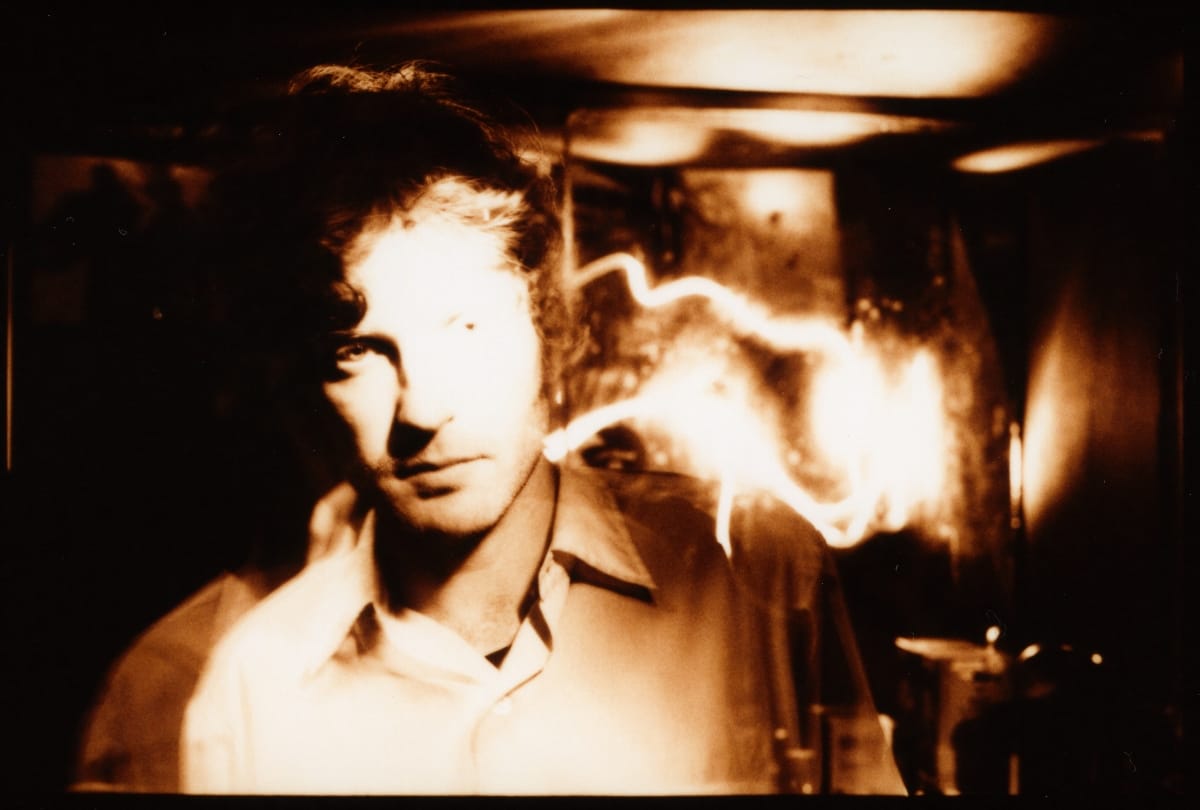
Sam: What are some non-musical things that have either influenced this record or just yourself over the years?
Greg: Writing the new record, at least, I think I was just as much influenced by movies and books and poetry as music. Writing a record can be kind of daunting—you don't always want to listen to other music while you're doing it because then you just might end up feeling like you're ripping something from it. I’ve found it’s nice to be in your own world when recording, in terms of the music you're listening to.
But yeah, I was reading a lot of poetry. Louise Glück was a poet who was influential and lived in Vermont. Grace Paley—I have a book of her poetry that I was reading a lot. She also lived in Vermont. I was reading a mix of things, including a lot of crime fiction and Jim Thompson, as well as a number of Denis Johnson stories. I would really watch any movie. Movie writing is so good—there are always some good lines to steal from. Well, same with poetry. I've stolen so much shit from poems that I read.
Sam: I can imagine, when writing a record, it's good to take in all sorts of storytelling formats. What about things like the poetry formats or a movie's dialogue help you when writing?
Greg: I think there's maybe less room for experimenting with language in music. You have to be direct, or you have to be easily understood. Then you read a poem and it's playing all sorts of mind games with you—it's tricking you into understanding its meaning, and it's working backwards and all this stuff. Same with books and movies, really. That's an important thing for my songwriting right now, just trying to keep an open mind to how you can write a song literally and have it convey something complex. I don't know, maybe that's pretentious to some people, but those are my favorite songs—ones that have layers of meaning, maybe, and aren't always straightforward or make sense.
Sam: I know you worked on re-releasing I Looked Out around the same time as the Burnover sessions. Were there any lessons you took away from the first record that you maybe did not want to repeat on Burnover? I can imagine there was a bit of jumping back and forth between focusing on the re-release while also trying to keep the focus looking forward.
Greg: Yeah, I kind of wrapped up both of them at the same time. It was a really weird experience, like I had to record a bonus track for the first record, and made this medley as another bonus track. That one was just from old recordings I had to go back into, which felt like I was back in that world making the record I made four years ago with my friend. It was weird, but it highlighted some of the differences in how both those records came to be. I mean, I Looked Out was like—I could spend all the time in the world to make it. I could change the mixes and just walk around listening to it until it's perfect. With the new record, I made it at my friend's studio, and there's way more of me just letting it be how it was. Yeah, there's a lot of letting go with it. I think that was the biggest difference.
Check out more like this:
 The TonearmSam Bradley
The TonearmSam Bradley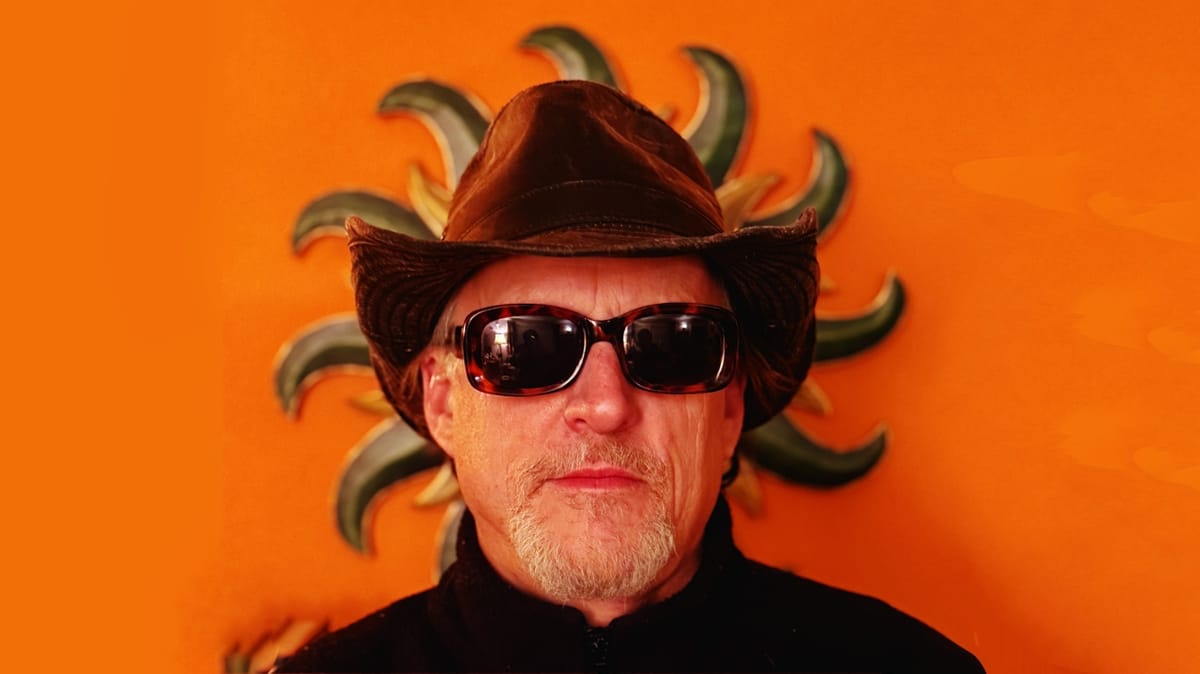
 The TonearmMichael Donaldson
The TonearmMichael Donaldson


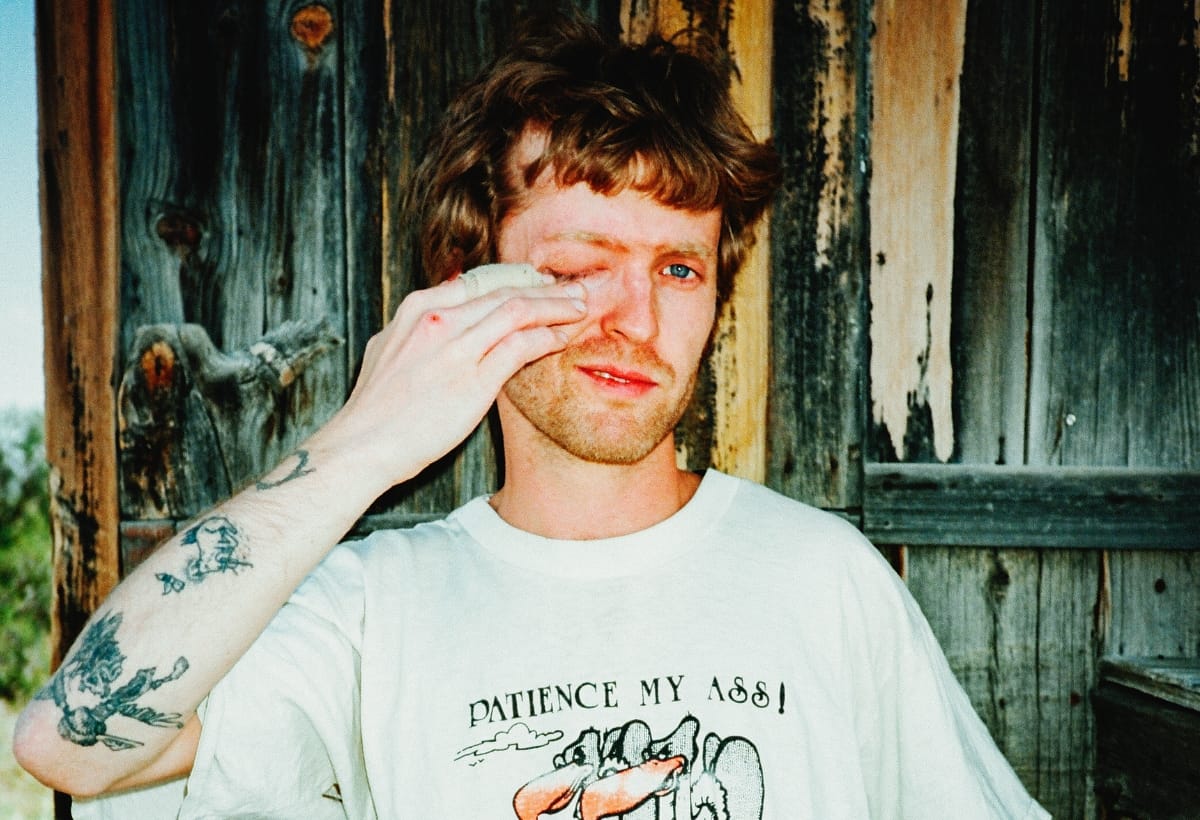
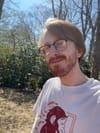
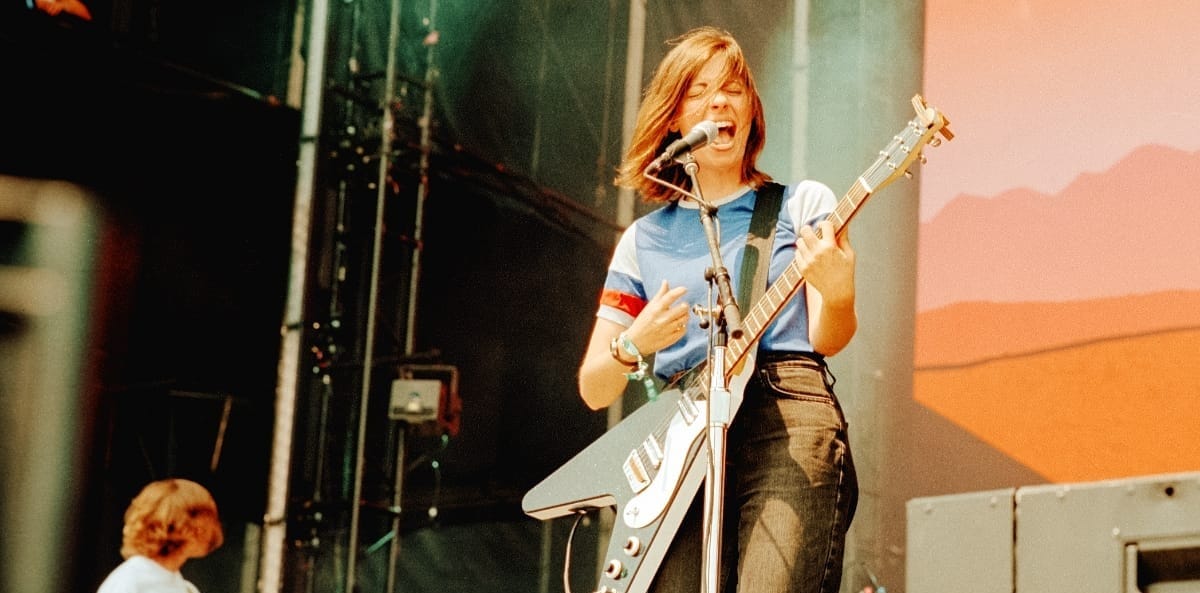
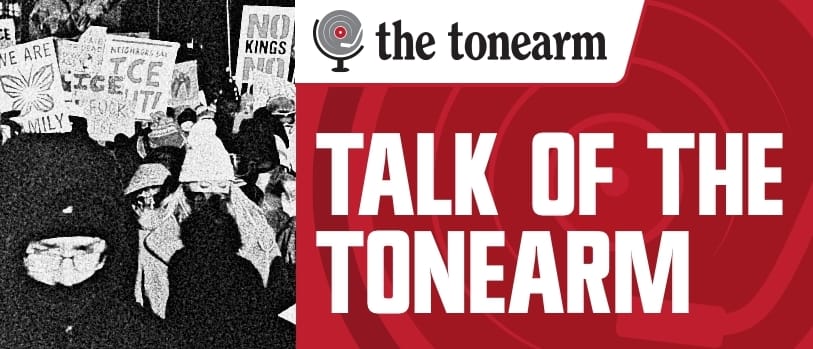
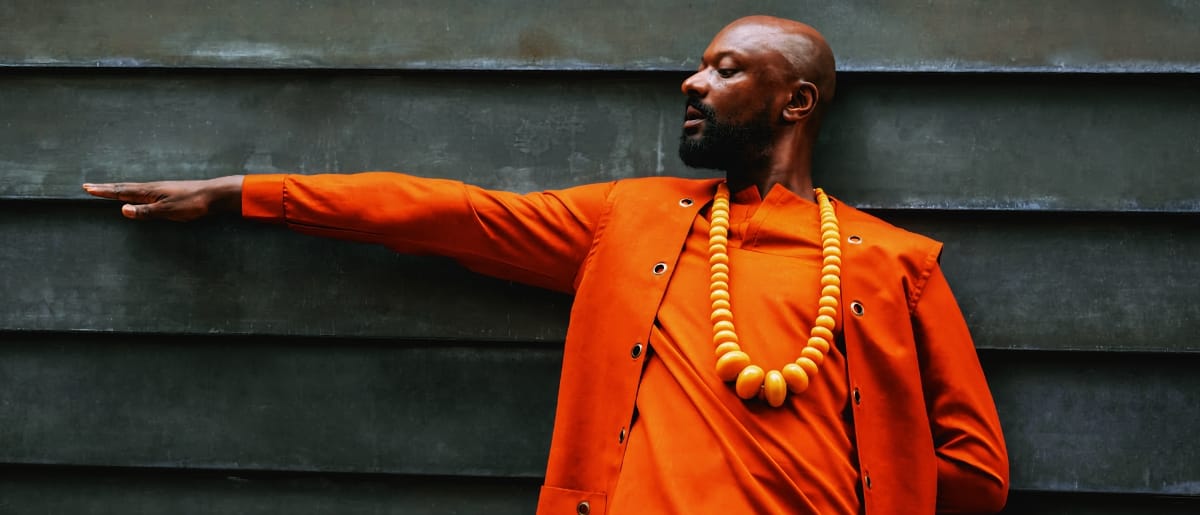
Comments